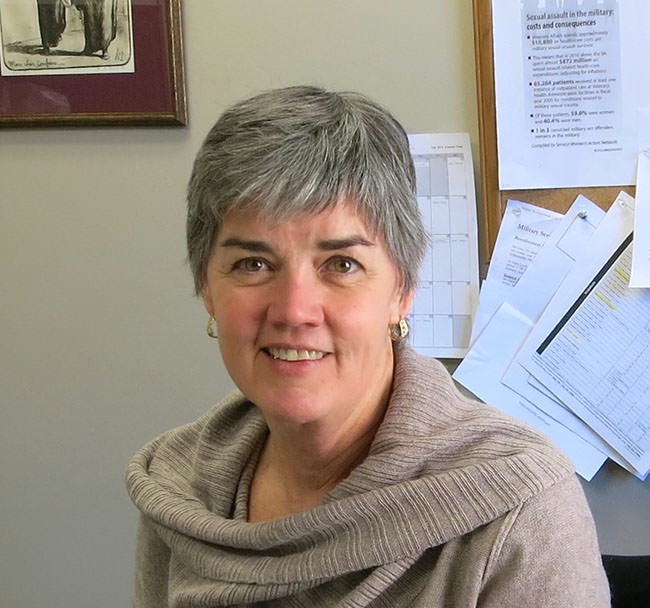
The Veterans’ Advocacy Project is a great community for helping veterans. Everybody is not thinking of themselves but thinking of the person they are helping. We’re talking federal government, state government, city government, county government, and all these other agencies work together. The City of St. Louis and the City Counselor’s Office are some of the best people to work with. It’s a community that works together.
1. What led you to the mission of being a veterans’ legal advocate?
I became an attorney first. I graduated from Creighton University Law School in 1982. I also have a master’s degree and a degree in international management. When I got done, the job market was awful. Everything was banking or some other job that seemed boring to do.
Initially I got into the military and just wanted to go overseas. I got to travel, but I also got great legal work right off the bat. I was trying cases for attempted murder, conspiracy to murder – and these cases just a couple of years out of law school. I had a lot of support, 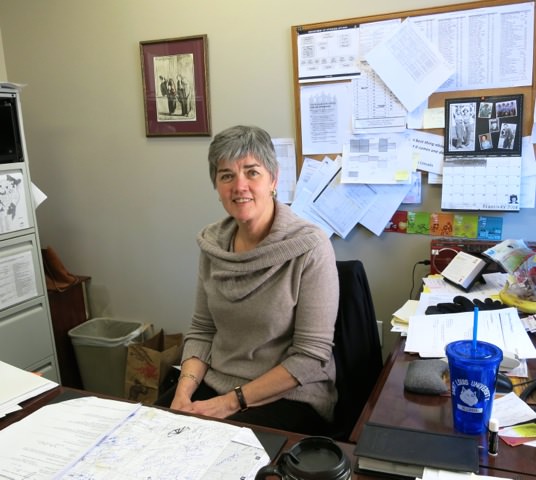 mentoring, and people to help me in the service.
mentoring, and people to help me in the service.
I can’t tell you how many countries I’ve been to through the military. I went to Korea. I went to Spain. I’ve been to Bosnia twice on tours. I got to work at the Pentagon for a year. I’ve seen Babylon and the Gates of Nineveh. When I was a kid I never thought I would be able to see some of those places.
I really like the people I meet in the military. It is like an equalizer when it comes to gender, race, financial background and all those things. The military has always been out ahead of other parts of our society in terms of accepting and integrating. That doesn’t mean that it is perfect, but it is fascinating who you meet when you start taking those things away and you get to work with folks you wouldn’t normally get to work with. Seeing how other countries legal systems work and how they handle things, and the way they analyze and do things, has been fascinating.
I started working for the Veterans Advocacy Project three years ago and there weren’t many people doing this kind of work. The project is a part of the Catholic Legal Assistance Ministry at the St. Louis 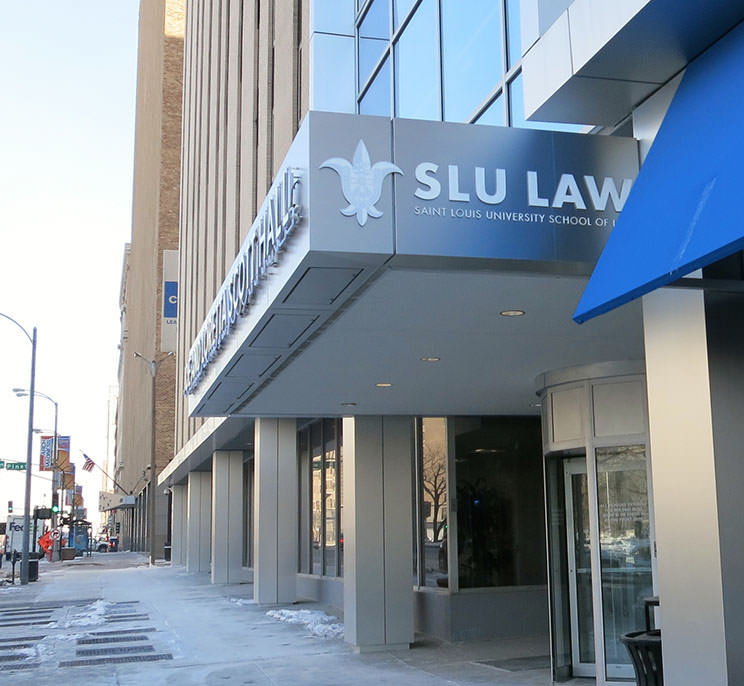 University Law School. I wanted to help the veterans and had all the legal expertise from being in the military as a JAG (United States Judge Advocate General’s Corp). They are the military lawyers in the military. All the services have JAGS. I felt like I could relate to veterans more than people who might not have had a military background. This actually turned out to be the case. I was interested in doing this work, but I didn’t know exactly what I would end up doing. I ended up setting up the Veterans Advocacy Project to remove barriers that keep veterans from accessing services that are available to them as veterans.
University Law School. I wanted to help the veterans and had all the legal expertise from being in the military as a JAG (United States Judge Advocate General’s Corp). They are the military lawyers in the military. All the services have JAGS. I felt like I could relate to veterans more than people who might not have had a military background. This actually turned out to be the case. I was interested in doing this work, but I didn’t know exactly what I would end up doing. I ended up setting up the Veterans Advocacy Project to remove barriers that keep veterans from accessing services that are available to them as veterans.
A variety of things can keep veterans from accessing health benefits, education benefits, housing benefits, or other programs that are out there for veterans. For instance, a veteran may have warrants out or a particular type of discharge. Here they are able to talk to an attorney, go to court, get the warrants resolved, and get their record clear so they can move on with their lives. It doesn’t take a lot of smarts. It just takes someone who will do it.
2. What does this mission mean to you?
Helping veterans is especially important to me because I have thirty years of service. I started in February of 1984. To me veterans are a special group of people. They are a special group of clients because of that military background. There is no messing around. There are no stories. We cut through all this stuff and say, “You are not doing this right. You need to get this done. You can’t give answers that make no sense and are not logical. If you are going to be a part of society, you have to respect society as well. You can’t live in this isolated bubble.” We try to get their records squared away. The veterans get this and we have a whole community of providers here that can help them and hold people accountable.
There is a lot of responsibility that goes with this job. What I see is that there are a lot of people who don’t know how to access the system, don’t know how to resolve things, and don’t know how to take care of things. It interferes with them being a part of society.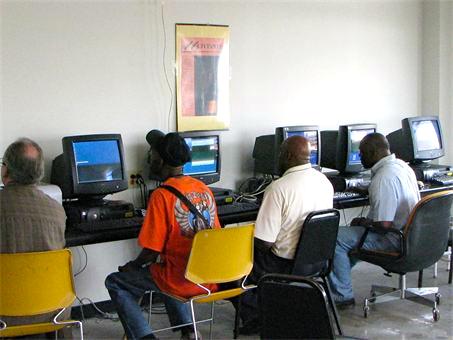 They stay below that line.
They stay below that line.
We have Windsor Transitional that will do housing. We have Hope Recovery that will do services and appointment connections that try to help them get a job. We have the city of St. Louis that will help them do the Stand Down and help with housing projects through some of the money they have in programs. Stand Down is for homeless veterans. Stand down programs are across the country. Different cities do it different ways. The city of St. Louis, the county, and the whole community sponsors a whole morning twice a year called the Stand Down For Homeless Vets. We do legal intake with St. Louis University’s Law Clinic and law students and some other agencies that may want to volunteer. At the Stand Down, they have food, they have music, they have clothing they issue, and they connect vets up with all the different agencies that have booths there. There is one coming up May 3rd, 2014.
Our Stand Up is for women vets. The Stand Up is something that I started when I came in. I used it as a way to meet all the people in the community, plus I wanted to do something for women veterans. 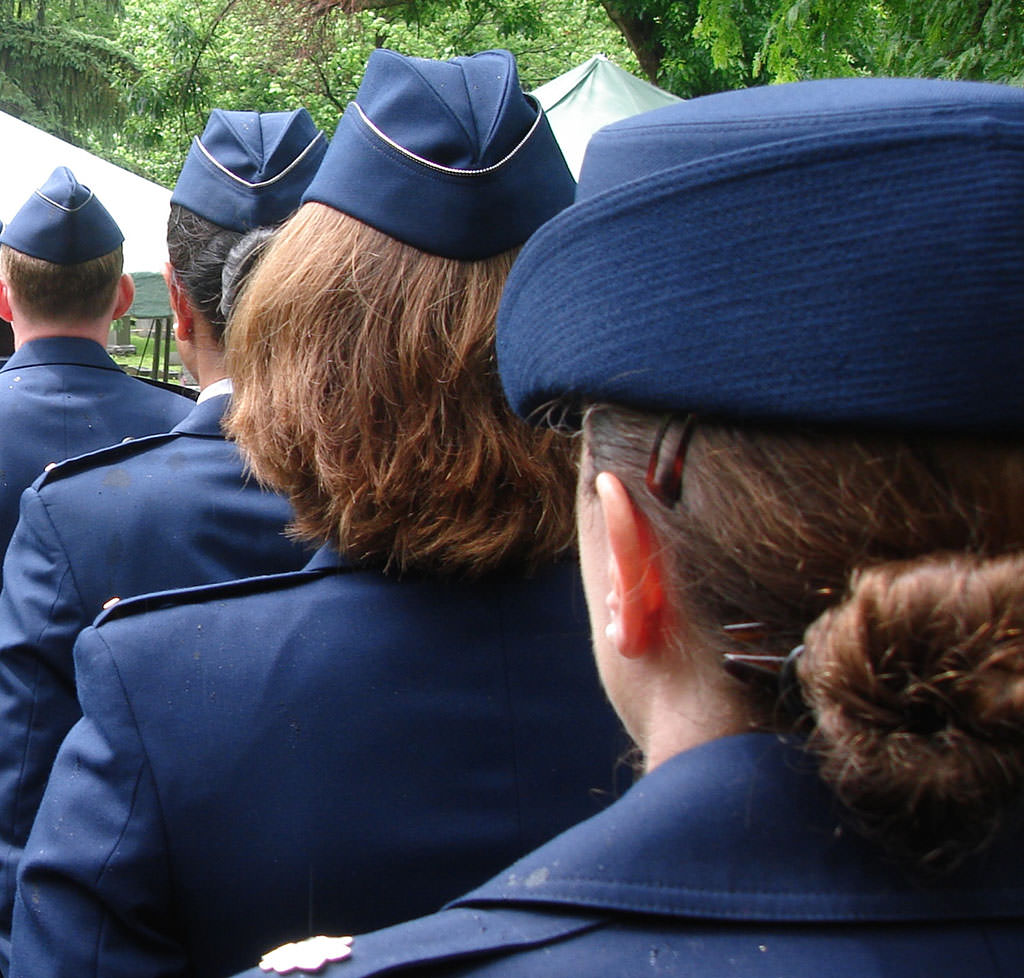 Now we have a Stand Up committee that puts us on once or twice a year. It’s just for women vets. We get Paul Mitchell or other beauty schools to come in and do haircuts. We get people to do manicures. We had some people come in and they helped teach the women vets how to make baskets. We have all the agencies there. We have universities there. We have a women vet that makes hula-hoops and we end having a hula-hoop contest. It is a whole group of folks.
Now we have a Stand Up committee that puts us on once or twice a year. It’s just for women vets. We get Paul Mitchell or other beauty schools to come in and do haircuts. We get people to do manicures. We had some people come in and they helped teach the women vets how to make baskets. We have all the agencies there. We have universities there. We have a women vet that makes hula-hoops and we end having a hula-hoop contest. It is a whole group of folks.
I like working with women veterans. They are even a more isolated group in terms of accessing services. They may be better equipped to survive and get things done, but they are missing a lot of things that taxpayers are paying for to help them and to make it easier for them.
We have a DJ so the women are out there dancing. All the agencies are there so the women veterans can get information on how to get help. There is a fair amount of pampering and food. This is really just a chance for the women to start talking to each other and meeting each other. It is a smaller group than that of the males or all vets together.
3. What was your best day as a veterans’ legal advocate?
There are lots of good days. Any time that you open a door for somebody, it is a good day. I’ve had clients that literally started coming to me when they were homeless on the streets. They will be coming in with the gray skin. They need to charge their phone. You give them a cup of coffee and whatever food. Then I see them after they are helped. They are into housing. The may not be working full time, but they are trying to work and trying to get other things going.
When you see people start having hope about what is out there and seeing some future for themselves – those are always the best days. Not that life is perfect, but opening a few doors and letting them see 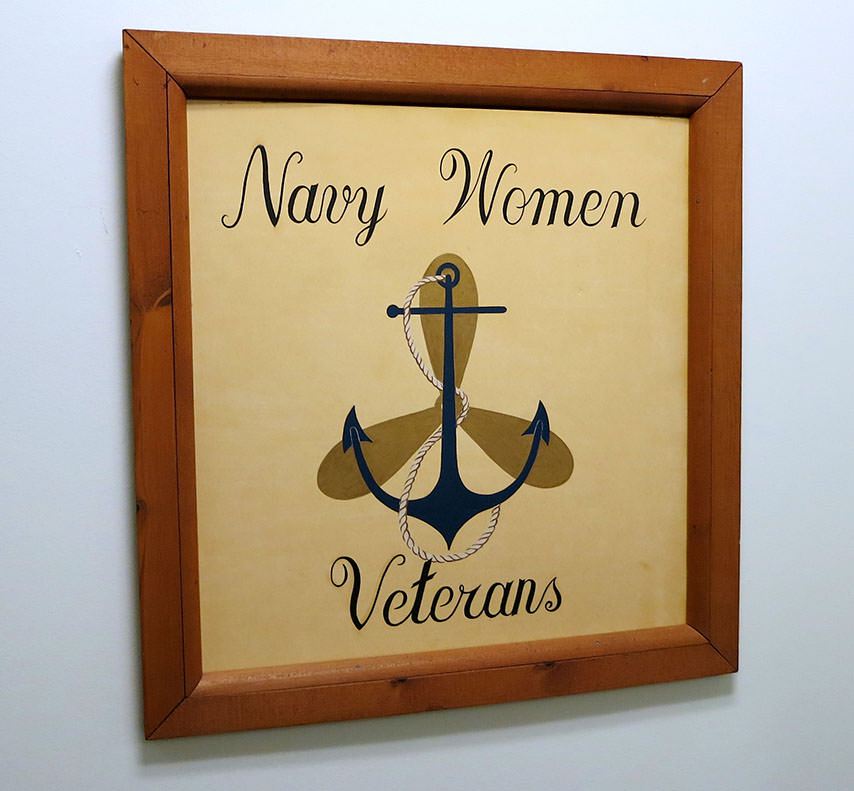 something more than the twenty feet around them – which is where they have been living – seeing these changes makes it my best day.
something more than the twenty feet around them – which is where they have been living – seeing these changes makes it my best day.
We worked with a woman who had an “other than honorable” discharge. It kept her from getting jobs. She was proud of her service. But she had had some serious issues. She was young and had had so many tragedies and troubles in her life that had not been addressed. This ended up giving her a bad characterization on her discharge. This kept her from getting jobs and accessing services. She thought she could not tell people she was a veteran – even though she had served. Once we got her upgraded to honorable conditions, she could be proud of her service. The job was secondary. Most important, she wanted to be able to talk to people and be proud of her service.
The problem is that people might have some mental issues so they are not able to pay their bills, they don’t have support, and the state goes after them and they become felons. Once they are felons, they 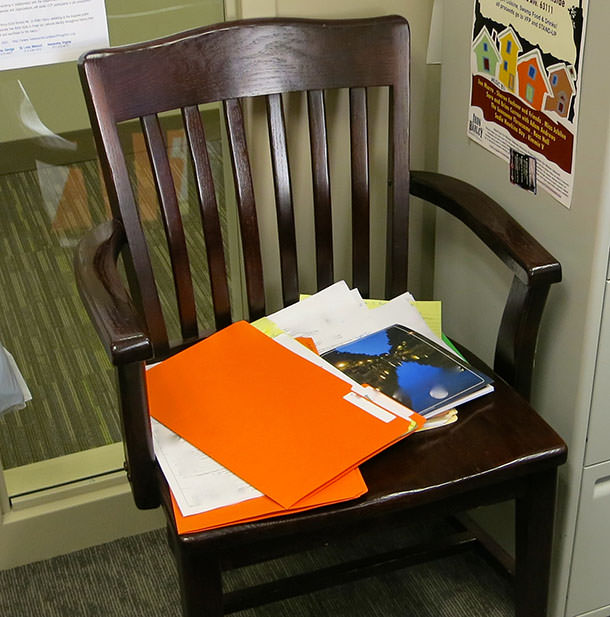 can’t get a job. These problems also make it difficult for the vet to appear in court. They may not have a job. They may be depending on food stamps. They have no transportation. They are in transitional housing. They may have a government cell phone with limited minutes. If they run out of minutes, you can’t reach them for the rest of the month. These guys who have mental issues need to be able to survive, and they need help.
can’t get a job. These problems also make it difficult for the vet to appear in court. They may not have a job. They may be depending on food stamps. They have no transportation. They are in transitional housing. They may have a government cell phone with limited minutes. If they run out of minutes, you can’t reach them for the rest of the month. These guys who have mental issues need to be able to survive, and they need help.
I think it is a great community for veterans. I started the idea here, but it is a group community effort and always has been. From employment to housing to medical care to psychological care – all the things these people need – it’s a community that works together. We’re talking federal government, state government, city government, county government, and all these other agencies work together. Everybody is not thinking of themselves but thinking of the person they are helping. There is nothing better than that – to be able to work with a group of folks like that. It really is a great community for helping veterans.
4. What was your worst day as a veterans’ legal advocate?
The worst days are when you don’t know all the right answers. They are when people don’t have any compassion or don’t understand humanity. There are a lot of “silvery-spoon” people out there who don’t understand what little we need. The people I work with need so little. They need so little dollar wise and substantive wise. And  yet you get people who won’t listen and won’t think about how to help out. I must say, however, that the City of St. Louis and the City Counselor’s Office are some of the best people to work with. The City Counselor’s office and the Municipal Court of St. Louis are so wonderful. They are so understanding. To me there are the tops.
yet you get people who won’t listen and won’t think about how to help out. I must say, however, that the City of St. Louis and the City Counselor’s Office are some of the best people to work with. The City Counselor’s office and the Municipal Court of St. Louis are so wonderful. They are so understanding. To me there are the tops.
The bad days are the things that are outside of my control. Work-wise, it is always you. You either get it done or you don’t get it done. I don’t count those as bad days. These are the things that I can control. I can beat myself up because I didn’t do enough or that I didn’t do enough, or this was not right or I didn’t know that there was a case out there that said this or that. But that is me. Those things I can fix. The bad days are the things outside of my control.
5. How did you survive your worst day?
Maybe it is the military training, but when you have a bad day, you just go. That doesn’t mean that I don’t remember all the things. I can probably go back and remember all the things that I didn’t like. I don’t forget them. But it is a waste of time to dwell on that kind of stuff. If it is not moving things forward or at least keeping them the same, then there is no point in spending time on it. You can’t change what people think usually. If it’s not something that I can change, I just move on.
- « Previous person: Roni Bailey Chambers
- » Next person: Ted Piekutowski